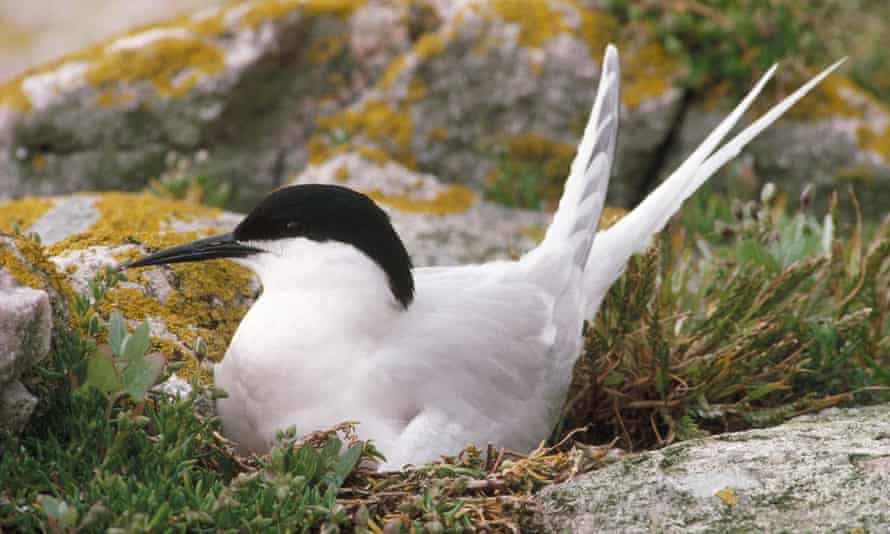‘Rogue’ paddleboarders and kayakers threaten seabird sanctuary
Human activity disturbs nesting of puffins and rare roseate terns at Coquet Island in Northumberland

A bird sanctuary island in Northumberland, home to Britain’s rarest nesting seabird, is being threatened by an influx of “rogue” paddleboarders and kayakers who are causing major disturbances.
Dr Paul Morrison, the site manager of Coquet Island, said in his 37 years in the job he had seen a lot of changes, but “this is one of the most serious ones”.
“We’ve had a season of disturbance. There’s paddleboards everywhere. And some of these kayak groups are there nearly every day, and constant disturbance could mean the birds don’t settle, or they abandon their eggs, or the eggs go cold,” he said.
“We’re having to take action against them. We guard the island 24/7, we’ve got a very sophisticated police-recommended security system. But there are one or two that either don’t know, or disregard the law and push their luck.
“We’ve been trying to get the message out, but there’s still a rogue element which doesn’t respect the birds.”
Coquet Island is home to the UK’s only roseate tern breeding colony as well as about 30,000 pairs of puffins and 1,400 pairs of arctic terns. There were as few as 16 breeding pairs of roseate terns in the UK in the 1970s, a number which has risen to more than 100 thanks to conservation efforts.
In 1979 Coquet Island became a designated sanctuary, meaning it is protected from disturbance and landings all year round, and breaching these rules is illegal.
“The police have made it clear to us that it’s not just an offence for [intruders], it’s an offence for us if we don’t intervene and do something about the disturbance,” Morrison said. “At one time it was just egg thieves, that was bad enough, but now it’s twofold – we’ve got egg thieves and disturbance.”
Morrison said they are trying to ensure kayakers and paddleboarders don’t come closer than 20 metres to the island, and said disturbing birds on the beach can cause a “second wave” response where nesting birds also fly away.
“Obviously after Covid a lot of people have just taken to the waters because they want to have a little bit more freedom, but they need to respect the island,” he said.